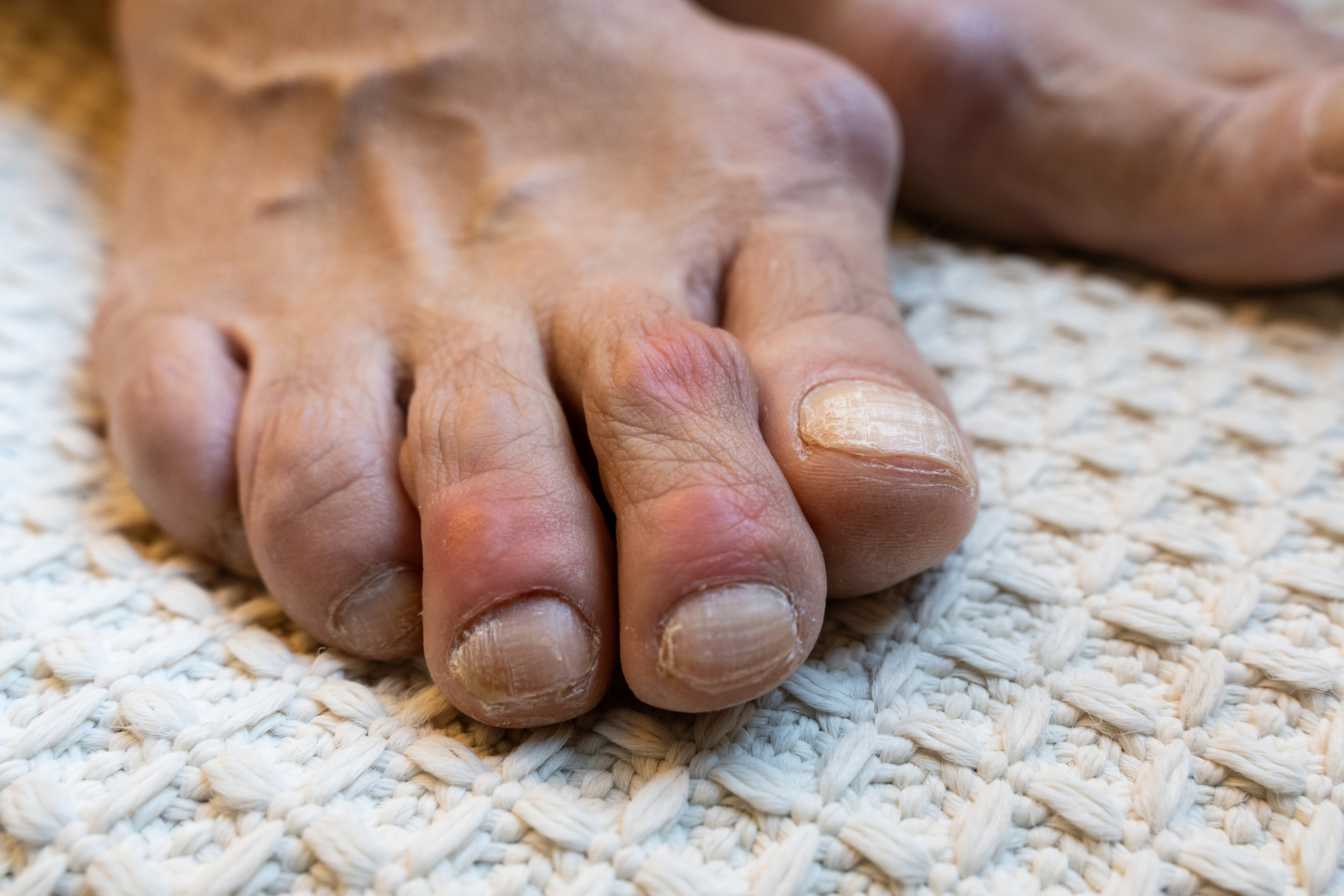
What is Gout?
Gout is a type of inflammatory arthritis characterized by sudden and severe attacks of pain, swelling, redness, and tenderness in the joints, particularly in the big toe. It is caused by the buildup of uric acid crystals in the joints and surrounding tissues. Uric acid is a waste product that is normally excreted from the body through urine. However, in individuals with gout, uric acid levels become elevated, leading to the formation of needle-like crystals in the joints.
Gout attacks typically occur suddenly and often at night, with symptoms including intense joint pain, swelling, redness, warmth, and stiffness. The affected joint, most commonly the big toe, may become extremely tender to the touch and may be difficult to move. Gout attacks can last for a few days to a few weeks and may resolve spontaneously or with treatment.
Several factors can contribute to the development of gout, including:
- High Uric Acid Levels: Elevated levels of uric acid in the blood, a condition known as hyperuricemia, increase the risk of uric acid crystal formation and gout attacks.
- Dietary Factors: Consuming foods high in purines, such as red meat, organ meats, seafood, and certain types of alcohol (especially beer and spirits), can increase uric acid levels and trigger gout attacks in susceptible individuals.
- Obesity: Being overweight or obese is associated with an increased risk of gout due to the production of excess uric acid and decreased excretion of uric acid by the kidneys.
- Genetics: A family history of gout or a genetic predisposition to high uric acid levels can increase the risk of developing gout.
- Medical Conditions: Certain medical conditions, such as kidney disease, hypertension, diabetes, metabolic syndrome, and certain types of cancer, may be associated with an increased risk of gout.
Treatment for gout aims to relieve pain and inflammation during acute attacks, prevent future attacks, and lower uric acid levels to prevent the formation of uric acid crystals. Treatment strategies may include medications such as nonsteroidal anti-inflammatory drugs (NSAIDs), colchicine, corticosteroids, and medications that reduce uric acid levels (e.g., allopurinol, febuxostat). Lifestyle modifications, including dietary changes, weight loss, and limiting alcohol consumption, are also important for managing gout and reducing the frequency of gout attacks. If you suspect you have gout or experience symptoms of a gout attack, it’s important to consult with a healthcare professional for proper diagnosis and treatment.
See More on Video

The End Of GOUT Program™ By Shelly Manning The program, End of Gout, provides a diet set up to handle your gout. It is a therapy regimen for gout sufferers. It incorporates the most efficient techniques and approaches to be implemented in your daily life to heal and control gout through the source.